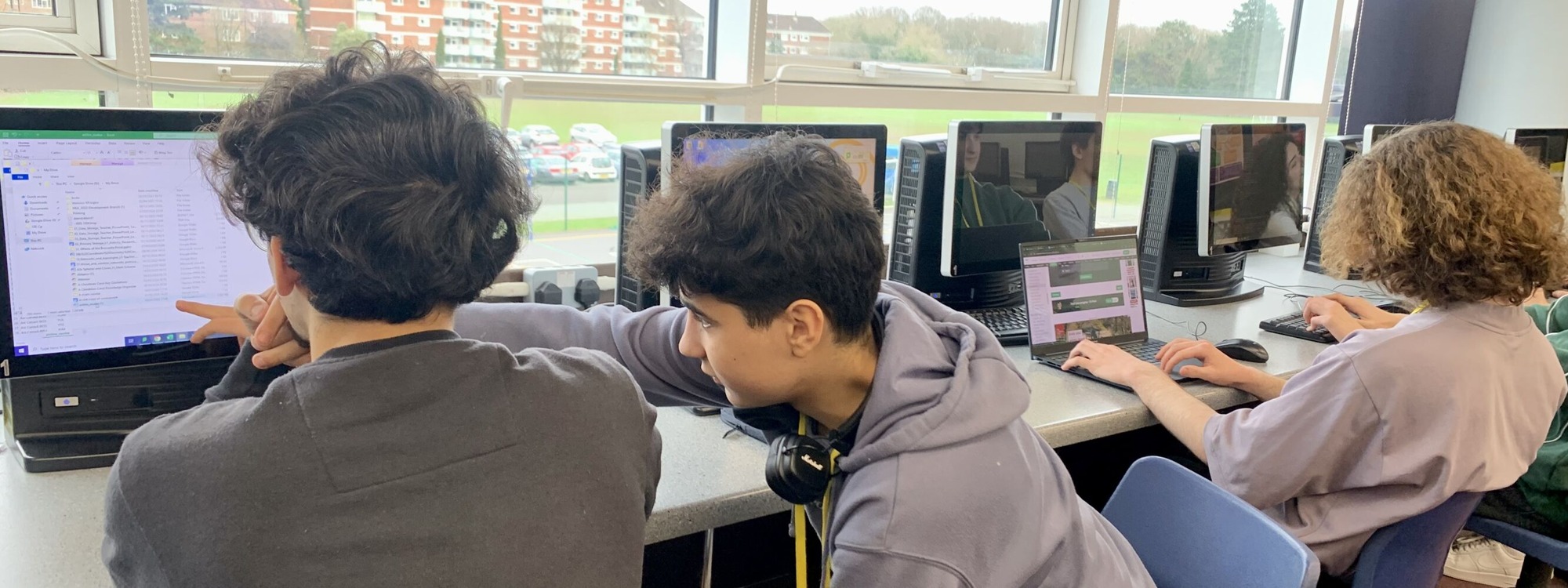- Home
- Sixth Form
- Sixth Form Curriculum
- Computer Science
Computer Science
Everybody in this country should learn how to program a computer... because it teaches you how to think.
Steve Jobs
Computer science is no more about computers than astronomy is about telescopes.
Edsger Dijkstra
Course Summary
Component 01: Computer Systems
Key topics include:
-
Characteristics of contemporary processors, input, output, and storage devices
-
Types of software and development methodologies
-
Data exchange between systems
-
Data types, data structures, and algorithms
-
Legal, moral, cultural, and ethical issues
Component 02: Algorithms and Programming
Key topics include:
-
Computational thinking (abstract thinking, procedural thinking, etc.)
-
Problem-solving and programming techniques
-
Algorithms and their application in problem-solving
Component 03: Programming Project
In this non-exam assessment, students apply computational thinking principles to a practical coding project. They are expected to analyze a problem, design, develop and test a program, and evaluate and document their solution. The project allows students to explore areas of computer science that interest them and can be implemented in various programming languages.
Facilities
Two Computer Labs with access to software such as Visual Studio Code, Blender and Godot Game Engine
Assessment method
Paper 1: Computer systems (40% of final grade) 2 hours and 30 minutes
Paper 2: Algorithms and programming (40% of final grade) 2 hours and 30 minutes
Non-exam assessment: Programming project (20% of final grade)
GCSE requirements
Grade 6 in GCSE Computer Science
Enrichment and Extra-Curricular
Drone Club
Exam Board
OCR - Course code: H446
Past paper - Algorithms and Programming
More detailed course information
